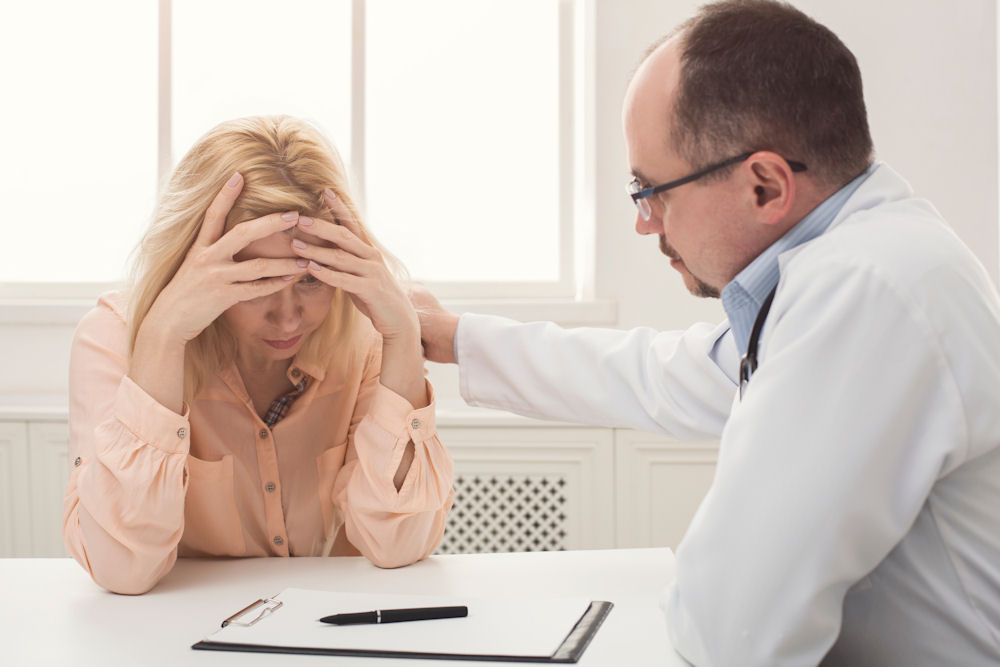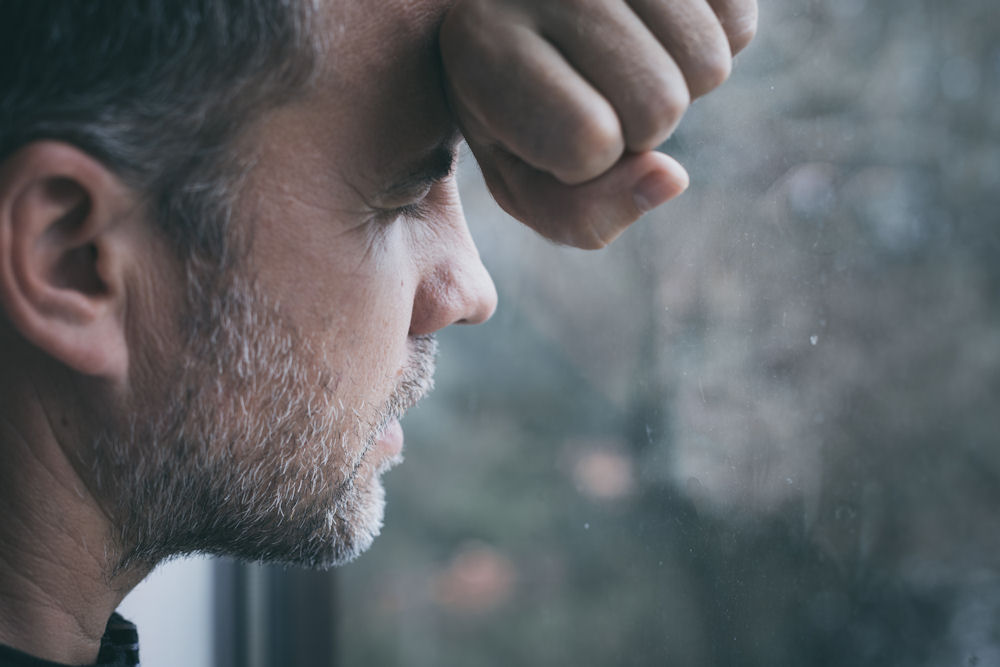Understanding Why People Relapse
One of the most common questions in the realm of addiction treatment is, why do people relapse? Most importantly, how is it prevented? Understanding these questions will keep you a step ahead of relapsing potential and achieving lasting sobriety. Here we’ll introduce you to a variety of relapse prevention techniques and how to keep your guard up during the most high-risk relapse periods.
All of which are most efficient when implemented by the teachings of a trained treatment expert. Here is everything you need to know about why do people relapse and how to overcome your recovery hurdles.

What is Relapse?
Put simply, relapse is the act or behavior of returning to drugs, alcohol, or gambling after a period of remission. Circumstances, withdrawals, and other life occurrences are what often results in resorting back to substance abuse. Therefore, it takes time, effort, and the proper training to overcome the temptations associated with relapse permanently. Speak to our caring receptionists to learn more about how we can help you overcome your relapse struggles.
Why Do People Relapse?
People resort to substance abuse for a variety of reasons. Each reason varies by individual because of the unique tolls life occurrences have on each person. Bearing that in mind, here are the most common causes of relapse.
Losing a loved one is understandably an unmatchable hardship that is the most difficult circumstance for anybody. Considering everybody grieves differently, such a hardship leads many to relapse without regard for sobriety. In this case, relapse is utilized as an escape from the pain of losing a loved one. Unfortunately, relapse doesn’t even accomplish that, often accelerating depression and sadness, which in turn deepens substance use.
Perhaps nothing can encourage relapse more than coexisting mental health disorders. Relapse potential is often most prevalent during a mental episode or at the height of the manifestation of mental health condition symptoms. The greatest approach to treat this type of mental health condition-causing relapse is to enroll in dual-diagnosis treatment. Together, we can help you treat your mental health problems and substance abuse struggles simultaneously. We will help you get to the root of your mental health and substance battles to ensure you rise above all your recovery obstacles.
One of the primary causes of relapse is the uncomfortable symptoms one experiences when one gets off drugs or alcohol. These withdrawal symptoms cause very uncomfortable and often painful consequences for abstaining from the source of your dependency. This discomfort encourages many to re-indulge in substances to subside these withdrawal symptoms. This frequently trickles down into escalating their substance use and worsening addiction. Thankfully, the help of the right physicians and medication-aided detox can help you overcome these withdrawals with minimized side effects.
Having issues with a spouse or significant other frequently contributes to depression and relapse. Again, relapse is utilized as an escape or coping mechanism to escape an undesirable reality. The dangerous part about depression-induced relapse is it often occurs without any care or regard for sobriety. When struggles with a significant other occur, that struggle diminishes personal drive or desire for sobriety or any drive to do anything. There are specific methods of positive reinforcement we can help you utilize to maintain your drive despite the personal struggles you encounter in life.
Without the accountability and support structure of therapists and loved ones, overwhelming desire is a primary cause of relapse. These urges, if left unchecked with the proper treatment methods, will be the downfall of anyone, regardless of intent. Origins Texas has all the tools to remove these desires and replace them with new desires for more proactive hobbies. Together we will dig deep and help you discover the real you without the need for drugs or alcohol.
One of the most difficult aspects of recovery is the need to change your influences. Many make the mistake of changing their behavior without changing their friendships. The relationships and bonds you develop during substance or alcohol use are hard to break and take professional guidance to provide perspective. Once you realize the ones who truly care about your well-being also care about your sobriety, it gives you the encouragement you need to change your influences. This means keeping yourself close to family and friends who don’t struggle with substance abuse. This helps you remain accountable and away from influences that will tempt you into relapsing.
What are the Stages of Relapse?
Emotional relapse refers to the pre-indulgence phase of expressing an inability to cope with an emotional life occurrence. In other words, emotional relapse is not the stage of indulging in your addictive substance. Rather, it is exhibiting a lack of coping skills in response to a discouraging life circumstance through other methods. This manifests itself in red flags such as self-isolation, emotional denial, or sudden lack of hygiene and unkemptness. These identifiable emotional relapse triggers are a frequent precursor to relapse.
Why do people relapse? The answer often comes down to this battle within one’s mind. That battle occurs in the mental relapse phase where one begins to question their true desire for sobriety versus the ever-increasing desirable temptation to relapse. During this phase of mental tug-of-war, one begins to question their desires in a variety of areas including sobriety, life goals, and personal esteem. Don’t become another victim of the difficult mental stage of relapse. Reinforce your mental fortitude with relapse-prevention techniques afforded by our team of specialists.
The physical phase of relapse refers to the actual act of resorting to substance or alcohol abuse. This phase often starts with the intention of just one use but seldom stops there. This initial use rapidly turns into a downward spiral of persistent use. One use is all it takes to snowball into frequent indulgence where the addicted personality often takes over.
When is Relapsing the Highest Probability?
Relapsing is most likely within the first 30 days following the completion of a detox program. Our detox programs often make it easy to prevent use. Once the strict detox procedures are lifted, even while enrolled in treatment, it becomes easier to relapse. Thus why the thirty days following detox remains the most likely period of relapse. This period is the most vital time to keep your guard up and your accountability support team closest.
Risk Factors of Relapse
Answering the question ‘Why do people relapse?’ is directly correlative with the risk factors of relapse. In essence, exposure to the following risk factors answers how and why the majority of people resort to indulging their addictive tendencies.
Environmental exposure refers to being exposed to social settings that encourage substance abuse. This includes friends who are known partakers of drugs or alcohol use or being in an environment where drugs or alcohol are being used. These exposures are known triggers for one to react impulsively to the addictive personality. Thus why it is of the utmost importance to remove these social influences and settings from one’s life completely. Once environmental exposures are removed, the road to recovery becomes clearer than ever.
Having a quarrel or conflict with close friends or family naturally lowers one’s guard against addiction behaviors. Whether out of spite, lack of care, or other reasons, these internal conflicts encourage many to relapse. The greatest solution is to resolve these friendly or family conflicts as quickly as possible. Some of the best solutions to your and your family’s struggles reside in our unparalleled family therapy programs. We help the family recover together by mending bonds and repairing relationships en route to helping you achieve full sobriety.
One of the primary keys to successful recovery consists of a strong support structure. Therefore, contrarily, little or no support structure directly contributes to a higher likelihood of relapse. This includes having friends or family who negatively impact that support structure by encouraging substance abuse. That’s why it’s important to not only have the right influences but also the right support that’ll continually encourage your sobriety. Your family, friends, and therapists, in conjunction with our support group training techniques, can overcome any addiction obstacle together.
PTSD is a chronic condition requiring professional intervention and support, often involving therapy, medication, and holistic care.

Relapse Prevention Techniques
Replace Addictive Behaviors with Enjoyable Activities
The main reason relapse occurs is that when addictive behaviors are removed, there is nothing to take its place. That’s where finding enjoyable hobbies comes into play. Origins Texas aids your self-discovery by introducing you to hobbies you can be passionate about based on your proclaimed joys. These joys are often activities you never knew you liked due to the jaded cloud of substance use that defined your activities. Once you’ve replaced your addictive behavior with a greater passion, you’ll soon forget the strongholds that once consumed your life.
Your loved ones can’t know the depth of your struggle with addiction and relapse if you don’t vocalize them. Most importantly, they can’t understand how to help you if you don’t open up. That’s why open communication with your specialist and loved ones is of the utmost vitality to ensure maximum recovery efficacy.
This aspect is made easier through professionally administered treatment. However, as alluded to earlier, developing a strong support group is the greatest foundation for any successful rehab. This means rallying your friends, family, and physician to help you remain accountable to them in recovery. This grounded support system is your basis to remain firm in the foundation of your sobriety goals and principles.
There are numerous relapse prevention techniques beyond the ones displayed here. All of which can be taught, implemented, and sustained under the guidance of a trained professional. You’ll feel the addiction burden lifted from your shoulders by reaching out to our compassionate team dedicated to serving you.

